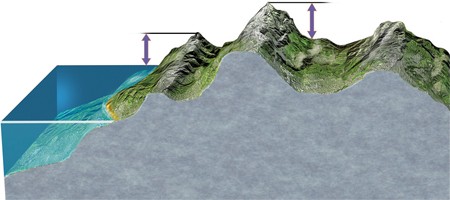Curiosity and skepticism are important features of the scientific process. Explain how these two attributes in a scientist come into play during a late phase of scientific investigation called accept or reject the hypothesis
What will be an ideal response
A skeptical and curious scientist will want to know the real reason for why nature works in a certain way. He/she would not be satisfied until reaching the appropriate conclusion about the investigation being conducted.
You might also like to view...
Would you expect to find more dissolved oxygen in polar or tropical ocean waters? Why?
A. There would be more dissolved oxygen in the tropical oceans because intense tropical storms mix up the atmospheric oxygen into the ocean water. B. There would be more dissolved oxygen in the tropical oceans because the heated oxygen molecules in the air would collide with and mix into the water. C. There would be more dissolved oxygen in the polar oceans because the colder oxygen would "sink" and dissolve into the water. D. There would be more dissolved oxygen in the polar oceans because the solubility of oxygen in water decreases with increasing temperature.
A large flood in a river may cause abrupt shifts leading to the carving of a new channel. The point at which this change occurs is a(n)
A) type of dynamic equilibrium condition. B) type of metastable equilibrium. C) threshold. D) input.
In the diagram below, the left arrow represents
A. relief and the right arrow represents elevation. B. elevation and the right arrow represents relief. C. relief and the right arrow represents slope. D. elevation and the right arrow represents depth.
The thicker part of a glacier will flow slower than where it is thinner.
Answer the following statement true (T) or false (F)